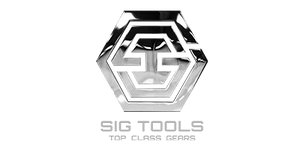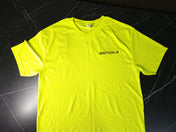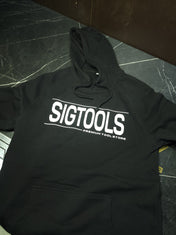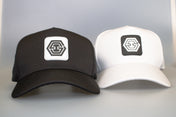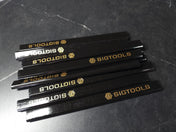Are you a tradie stuck between choosing a leather or nylon tool belt? You're not alone. This isn't just a simple choice of material—it’s about finding the right partner for your workday. At Signature Tools, we see this all the time, and we're here to help you figure out what's best for your trade and work style.
Whether you're after a tough, durable leather belt that feels like a second skin or a lightweight, customisable nylon setup, this guide will walk you through everything you need to know.
Let's get into the details to help you find the perfect tool belt for your job.
Why Go for a Leather Tool Belt? The Mark of a Master Craftsman
When you think of a classic tool belt, you're probably picturing a quality leather one. Brands like Occidental Leather have built a reputation on making gear that stands the test of time. Here in New Zealand, we're proud to shout out local heroes like Millenz, Katipo, and Peak Toolbelts who are also crafting exceptional leather goods.
Key Benefits of a Leather Tool Belt:
-
Unmatched Durability: Made from thick cowhide and reinforced with copper rivets, leather belts are built to endure. They can last for 10 years or more, even with daily, heavy use.
-
Superior Structure: Leather holds its shape, ensuring your tools stay secure and your pouches remain open for easy access. This is crucial for maintaining an efficient workflow on site.
-
Molds to Your Body: The "break-in" period is a key feature of leather. Over time, the material conforms to your body, offering a custom, ergonomic fit that provides excellent support for your hips and back, especially when carrying heavy loads.
The Downsides to Consider:
-
Heavier Weight: Leather is a dense material, and this can add significant weight to your belt, which might lead to fatigue during long hours or on jobs that require a lot of movement.
-
Less Breathable: In hot, dry climates, leather can get uncomfortable. It doesn’t breathe as well as synthetic materials and can become sweaty.
-
Stiff at First: A new leather belt will be stiff and potentially uncomfortable until it’s properly broken in.

The Rise of Nylon Tool Belts: Lightweight and Adaptable
Nylon is the modern tradie's choice for a reason. It offers flexibility and a focus on comfort that leather can't match. Leading brands like Badger Toolbelts (part of the Occidental family), Diamondback Toolbelts, and Atlas 46 have perfected the art of modular, lightweight gear.
Key Benefits of a Nylon Tool Belt:
-
Extremely Lightweight: Nylon is a synthetic material, making it much lighter than leather. This reduces strain and allows you to move faster and more freely in tight spaces.
-
Ultimate Customisation: This is nylon's biggest selling point. With a modular system, you can easily add, remove, and rearrange pouches and accessories to create a custom setup for every unique job.
-
Easy to Clean & Dries Quickly: Spills and mud are no problem for nylon. It's easy to clean and dries fast, making it ideal for wet or humid conditions.
-
Breathable: The material breathes better than leather, which helps keep you cool and comfortable on hot days.
The Downsides to Consider:
-
Limited Longevity: While durable, nylon materials and components like Velcro can wear out over time, especially with constant exposure to dirt and dust.
-
Less Rigid Structure: Nylon pouches may lose their shape over time, which can make it harder to grab a tool quickly compared to the rigid structure of a well-maintained leather pouch.


Final Verdict: How to Choose the Right Tool Belt for Your Job
Your decision comes down to your priorities on the job site.
-
Choose a Leather Tool Belt if: You want a durable, long-term solution that will handle heavy loads and stay tough for years. If your work is consistent and you value a structured, reliable setup, leather is your ideal choice.
-
Choose a Nylon Tool Belt if: You value lightweight comfort and adaptability. If you're a dynamic tradie who needs to adjust your setup for different jobs and work light and fast, nylon is the better option.
Ready to find your perfect fit? The best way to know for sure is to try them on. Visit us at our Auckland branch, and our team of professionals will happily let you get hands-on with both our leather and nylon tool belt ranges. We'll help you feel the difference and walk you through the process, so you can make the best decision for your work.
